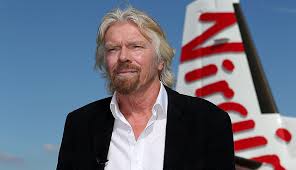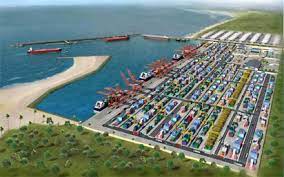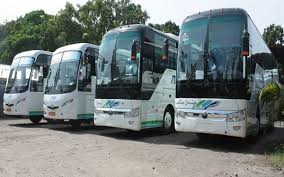Development analysts at Business Hilights Intelligence Unit (BHIU) weekend released a report suggesting that the horrible experiences of British billionaire, Richard Branson in running his domestic and international carrier, Virgin Nigeria in 2000, may weaken interests in Nigeria Air.
Branson, who set up domestic and international carrier, Virgin Nigeria in 2000, only pulled out in 2010 in frustration at what he fingered as institutional interference by politically-exposed-persons and regulators.
BHIU gathered that Virgin Nigeria, which was later rebranded as Air Nigeria, closed in 2012 after collapsing under about N35bn of debt, which left it unable to pay workers.
Industry analysts had argued that setting up a national carrier at a time aviation infrastructure is in shambles is a misplacement of priority on the side of the government that had pledged infrastructure renewal in key economic sectors including aviation.
The Minister of State for Aviation, Hadi Sirika, had on Wednesday last week unveiled Nigeria Air and its logo, saying even though government is currently driving the pilot scheme, core private sector investor will soon be named while the government will retain only five per cent stake.
On like what forced Branson out of the economy, Sirika assured that a private operator, sought through a Public Private Partnership process, would manage the airline without any form of interference from either the political class or government officials.
However, industry pundits are still divided on the almost veiled way and manner government is going on in search of so-called investors and at the same time looking for initial capital of between $150m and $300m for takeoff.
The same government looking for investors had earlier given December 24th 2018 takeoff date and at the same time is in talks with AirBus and Boeing for the first set of new aircrafts.
Weekend, our correspondent gathered that the federal government is making majority stake available to an overseas backer as it seeks know-how and cash to help the start-up avoid the fate of former flag carriers.
Though local content is in the mind of the current administration, but the way and manner it is pursuing Nigeria Air project, it may avoid investment cap on overseas ownership of Nigeria Air and will be prepared to offer more than 50 per cent of Nigeria Air to a strategic ally. This was credited to Mr. Tilmann Gabriel, who is helping to coordinate the project in an interview with Bloomberg on Wednesday at the Farnborough air show.
Whereas Sirika averred that the new national carrier, which is a replacement for the Nigeria Airways that stopped operations in 2003, will be a private sector-driven initiative, Nigerians seem to have lost confidence on the way and manner the ministry is cutting off critical aviation stakeholders in the build up to the emergence of Nigeria Air.
Though the Minister held talks at the expo with the chiefs of Ethiopian Airlines Enterprise, Africa’s biggest carrier, and Qatar Airways, which holds a stake in British Airways owner, IAG SA, there has been no news on the extent of negotiations with would-be investors.
There are plans for Nigeria Air to have a fleet of 30 aircraft and operate 80 routes, half of them international, within four years, but observers say this will be dependent on the preliminary success to be recorded between takeoff date and one calendar year.
BHIU also gathered from a reliable source weekend that the still veiled new operator plans to begin flying in December with a fleet of 15 leased aircraft, and has started talks with Airbus SE and Boeing Co on buying new aircraft. The requirement includes short-haul planes for local and domestic flights plus wide-bodies for flights to long-haul locations such as London and New York. Inter-continental services should begin in the middle of next year.
But since the unveiling of Nigeria Air, there had been growing mixed feelings from both industry experts and activists including former Minister of Education, Dr. Mrs. Oby Ezekwesili.
Before now, the National Union of Air Transport Employees (NAUTE) had queried the essence of the project when government had not done much in renewal of aviation infrastructure and the settlement of pension and severance benefits of workers of defunct national carrier, the Nigerian Airways.
Besides, the former Minister of Education, Dr Ezekwesili has labeled the Nigeria Air project as a waste and branded it an “elephant project”.
According to Ezekwesili in a tweet on her official handle, “I have seen a number of commentaries on this my tweet. Let me REITERATE it now I fundamentally consider a ‘National Carrier Project’ A WASTE. Before we once again SINK SCARCE PUBLIC RESOURCES into a WRONG-HEADED PRESTIGE project like an airline, I am GLAD to STAND ALONE on this.”
“I actually believed that at some point the FG would have ‘advised itself’ and known that the so-called ‘National Carrier project’ IS A WASTE. Sadly not so, as they are determined on what is CLEARLY A WRONG PRIORITY. It SHALL FAIL. For the sake of the country, it MUST FAIL.”









